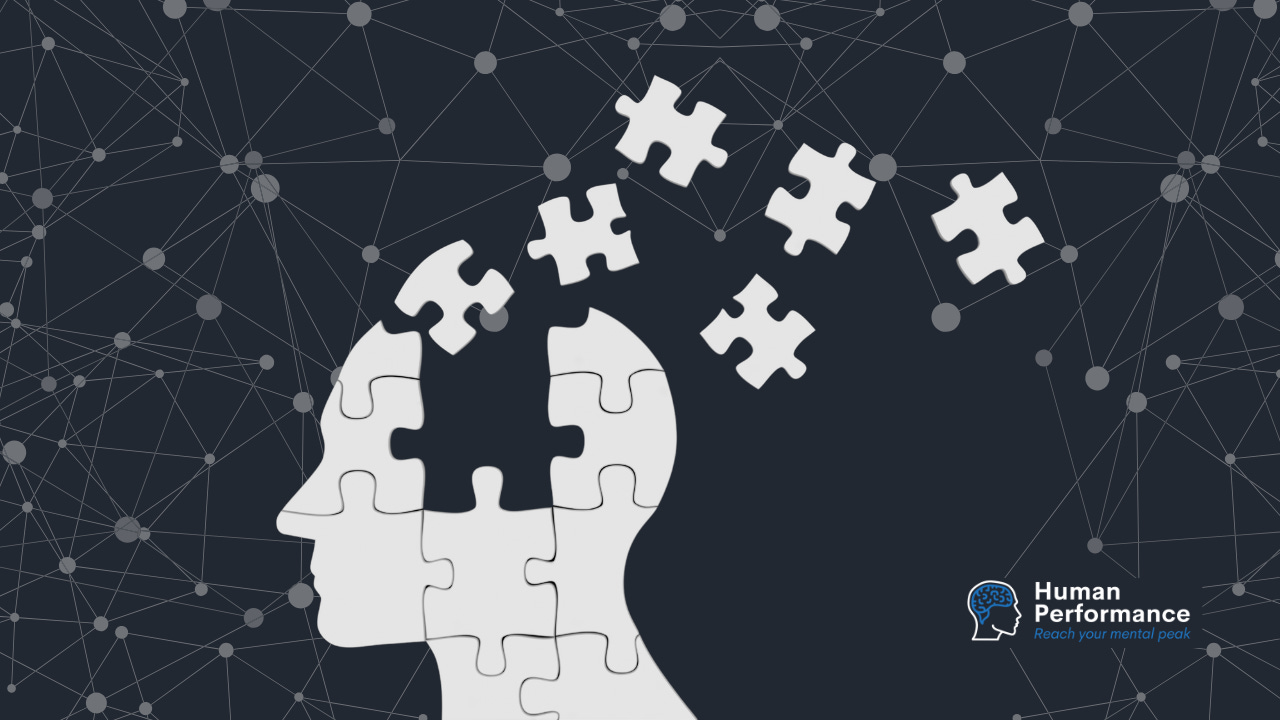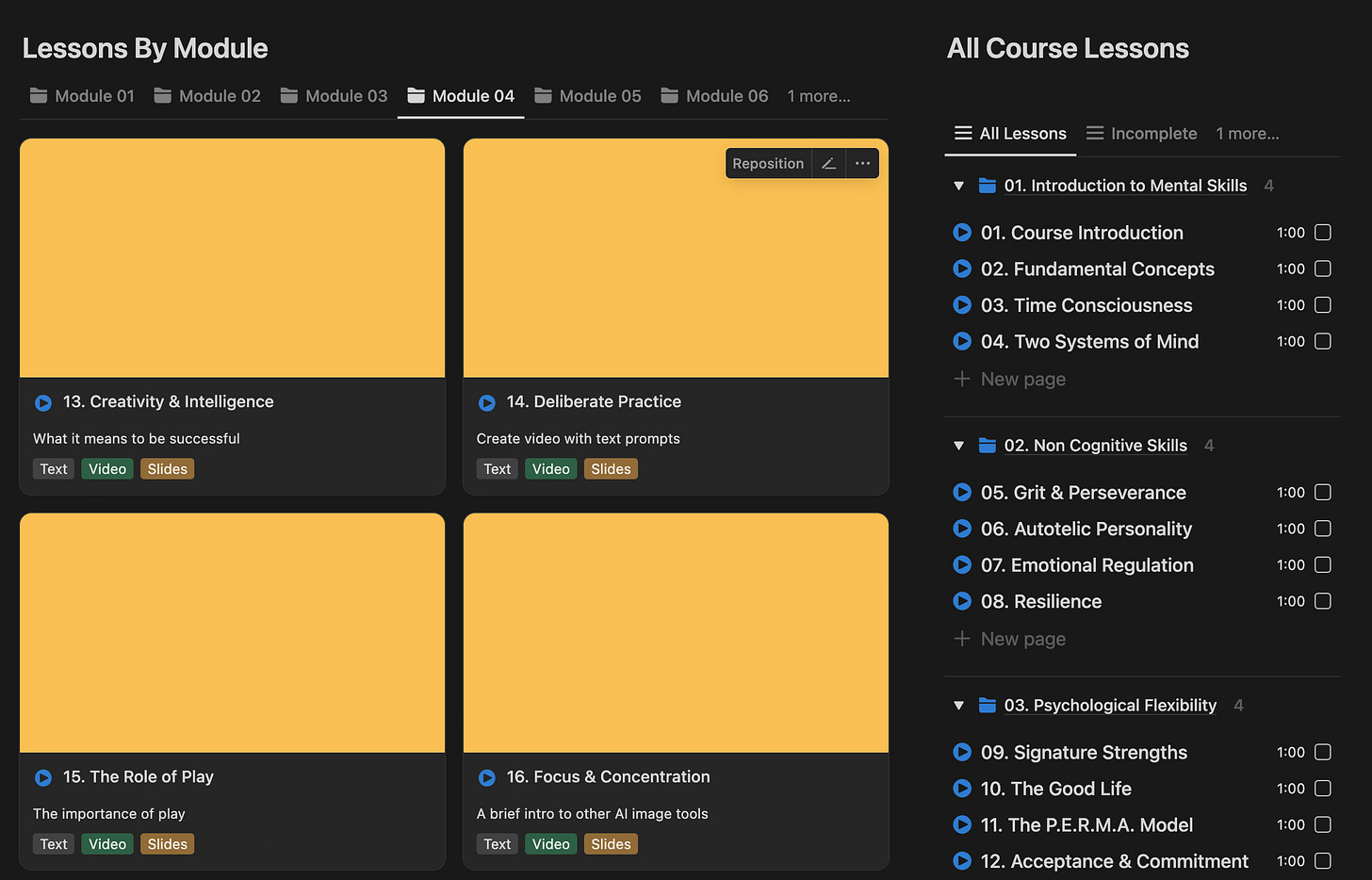Mental Skills: A Philosophy, Not A Clever Trick
About the concept of Mental Skills, how it fits with a life well-lived, and on the process of finding truth behind concepts
Thanks for being here. I’m Larry Maguire, work psychologist, lecturer in psychology and mental skills development specialist. Peak Performer is a newsletter associated with my work where I share articles on the science and philosophy of peak human performance through the concept of mental skills. If you like this material, consider subscribing. Already subscribed? Share this with a friend or colleague.
Next time you're out and going about your business, look around. Observe the behaviour of people around you, your family, friends, neighbours and, indeed, yourself. You may notice that most people are firmly asleep at the wheel. They have little or no awareness of life beyond the conditions of life experience. Life happens to them. They do not act on life consciously; they are not active agents in their own lives. Instead, things occur, and they react. They have no understanding of themselves beyond surface-level identity and gratification of needs. Most people are buffered by life circumstances and feel powerless to do anything about it, so they indulge in frivolous, non-complex behaviours to relieve themselves of the pain of their existence. These behaviours are then normalised and pervasive, and we become alienated from life itself.
A construction company comes in, for example, turns upside-down a meadow where you played as a child, and all is lost in favour of a shopping centre. The government decides to terminate the Department of Education, and thousands lose their jobs. You discover a life-threatening illness, and you claim life and death is a lottery. You’re taught from the earliest age that you’re simply a pawn in the economic game, and you must make yourself employable. It is as if your very existence must be justified by “earning” a salary, and if you cannot, you’re in a tent on the street. Everywhere you turn, forces and authorities outside you determine your life experience. The environment creates you; you do not create yourself. Although you do, in fact, create your own life by acquiescence to it all.
I want to offer an alternative.
This alternative I propose is to live more purposely and question norms of thinking, belief, and behaviour. It is the development of Mental Skills. Cultivation of Mental Skills does not represent some kind of hack to get what you want. It is not frivolous engagement in short-term material gain. It’s not about goals for the sake of goals. It’s not about medals, money, rockstar status, private jets, gold watches, sports cars, and other material ends, success in careers or business or even something as essential as a roof over your head. Although these things might materialise, they are not the objective I promote.
The objective is peace and contentment, to become a positive influence on others and the world, to make a lasting impact, and to be, dare I say it, happy. Happiness, to me, is peace and contentment, to be stable when all around you is turning to shit. To be composed and measured, make effective decisions, empathise and understand the experiences of others and how our actions impact them. It is to hear and see the world around us beyond the surface reality that occupies our physical and emotional senses.
This is the goal, and it’s not a fleeting one; it’s permanent. It is a right-now living of life rather than being caught, like most people are, in time consciousness, where the purpose of this moment is to make it to the next. Never present, always somewhere else, caught in a drama, rushing to get somewhere or get away from something. This is what I see when I look at the world and in the faces and stories of many of the clients with whom I work. I am not immune from it, I should say. I become caught in it, too. The trick, therefore (if it is indeed a trick), is to know the way out of the drama and return to equilibrium.
On The Origin Of These Ideas
The ideas I want to offer you are not strictly my own, although I may place a particular slant on them. There is nothing new, either, in what I write. If you can get to the core of it, you’ll see that these ideas are as old as the hills. They are in the philosophy of Zen, Aristotle and the Stoics. They are in the ideas of Wilhelm Wundt, William James, Sigmund Freud and John Bowlby. And they are in the writings of the poet Mary Oliver and the stories of Annie Dillard and Ray Bradbury. They are universal ideas and are persistent in the reports, philosophies and religions of women and men throughout human history.
However, problems occur with these ideas when we begin to worship them or the people who formulated them. When we build churches and ideologies around them and begin to prescribe a particular way of life over another. In this, we take agency and personal control from people, and we abdicate responsibility for life to some imaginary deity. That’s not how these ideas should be represented. Instead, as is written in Zen, these ideas point the way. They are a signpost to something that is ultimately indescribable and unknowable to the human intellect. In other words, these ideas are not, in themselves, the answer. The thing to which they point is something each of us must figure out for ourselves.
How we spend our days is, of course, how we spend our lives. What we do with this hour, and that one, is what we are doing.
- Annie Dillard
The Cultivation of Mental Skills
The quote above captures the essence of mental skill development. It is about cultivating the skills of awareness, personal volition, and action right now in every moment and doing so consistently throughout life. When we’re old and grey and reflecting on our lives, we will notice that life will be a culmination of every moment we have lived. So, in considering this, the only question remains: How will we spend our lives?
I’ve been working in the field of psychology for several years now and writing regularly on the subject, but recently, I decided to focus on Mental Skills specifically. Mental skills is an idea, a way to conceptualise the things that tend to show up when we’re in a good place, when we’re positively oriented, when we’re doing things worth doing, when we’re energised and optimistic about life and positively engaged with others.
In the study of peak performance, the term mental skills is generally used to capture specific behaviours such as mental imagery, self-talk, self-regulation, goal-setting and other cognitive and non-cognitive skills. But for our conversation, I’m extending that to other aspects, such as play, personality, creative intelligence, willpower, neurology and others.
The project is extensive, and part of it is to build a signature program that captures the concept's elements. You’ll see from the screenshot above that core aspects of Mental Skills such as Grit, Emotional Regulation, and the PERMA model of well-being are included. If I were designing a Master’s program on peak human performance, this would be it. There will be the following included in each lesson/module;
Video lectures
Lecture slides
Articles
PDF, MP3 files and other resources
If you’d like to know more about this program, post a comment below. In the meantime, keep reading and digesting the ideas I send you like this one on the cognitive benefits of handwriting, or this one on the limits of willpower, or this one on understanding anxiety.




I would like to know more about this program, thank you.